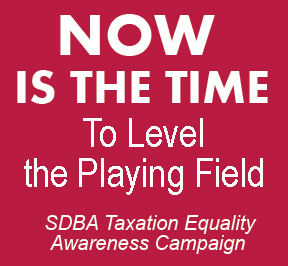
ABA, Operation Hope Kick Off Get Smart About Credit Today
Three thousand volunteer bankers nationwide will use Get Smart About Credit Day today to teach young adults lessons on building good credit habits for life. Now in its 12th year, Get Smart About Credit connects volunteer bankers with teens and young adults to learn the how-tos of credit.
This year, ABA, Operation Hope and 25 area bankers will kick off Get Smart About Credit Day at Overlea High School in Baltimore. Today’s event is part of ABA’s financial literacy partnership with Operation Hope, which offers financial education through its Banking on Our Future program.
“While personal finance instruction has increased in schools, programs like Get Smart About Credit and Banking on Our Future are needed for students to be financially confident and capable,” said ABA COO Mike Hunter, who will represent ABA at the Baltimore event. “We’re thrilled to be partnering with Operation Hope to deliver these lessons with our volunteer bankers.” Read more about Get Smart About Credit.
SDBA To Hold Security & Risk Management Seminar Oct. 21
The SDBA will hold its Security & Risk Management Seminar on Tuesday, Oct. 21, at the Hilton Garden Inn in Sioux Falls.
The morning session will focus on conducting annual institution-wide security reviews, and the afternoon session will highlight the top 25 mistakes that a smart institution never makes.
Learn more and register.
ABA Seeks Exemption from Limits on Mobile Data Security Alerts
ABA on Tuesday asked the Federal Communications Commission to remove barriers to the time-sensitive mobile calls and texts banks use to reach their customers when their accounts may be compromised. Class action suits filed under the Telephone Consumer Protection Act currently limit banks’ ability to offer these communications, even though most consumers prefer mobile fraud and security alerts.
“Effective fraud prevention requires the earliest possible contact with the customer,” said ABA President and CEO Frank Keating. “Automated text and voice message calls to mobile phones can reach people wherever they are, enabling customers and financial institutions to react promptly to stop fraudulent transactions and respond to data security breaches.”
ABA requested exemptions for communications that would alert customers to potentially fraudulent transactions, actions needed to complete pending money transfers and actions necessary to respond to data breaches.
“With about 40 percent of the nation’s households now ‘wireless only,’ the ability to send these automated notifications to mobile phones is critical,” Keating added. “The rules were designed for a time when nearly everyone had a landline. Since that is no longer the case, it is dangerous not to update the standards.” Read ABA’s FCC filing.
ABA Wins Fixes to TILA-RESPA Mortgage Disclosures
In response to feedback from ABA, bankers and other industry stakeholders, the Consumer Financial Protection Bureau last Friday proposed two changes to its TILA-RESPA integrated mortgage disclosure requirements, which take effect on Aug. 1, 2015.
The first change would give creditors one business day to issue a revised version of the new loan estimate form after locking in a customer’s interest rate, instead of the previous same-day requirement. Without additional time to issue the revised form, creditors might have locked in rates only before noon on any given day.
Responding to specific concerns about the longer settlement times for construction loans, the second change would add language to the loan estimate informing construction borrowers that they might receive a revised loan estimate if their loan takes more than 60 days to settle.
In addition to these ABA-advocated changes, the bureau also proposed several technical changes to the TILA-RESPA and loan originator rules. Comments on the proposed changes are due Nov. 10. Read the proposed rule.
CFPB to Offer Limited 'No-Action' Letters for New Products
The Consumer Financial Protection Bureau last Friday proposed a policy for infrequent “no-action” letters for new financial products. The proposal is intended to reduce regulatory uncertainty about how the bureau would treat innovative financial offerings that may not fit easily into the existing regulatory framework.
Under the proposed policy, the bureau would issue letters stating that CFPB staff have no present intention to recommend an enforcement or supervisory action based on the proposed product. The no-action letter would not waive any existing law or regulation, the bureau said, nor would it constitute official CFPB interpretive guidance. It could also be revoked at any time.
The proposed policy covers how to request a no-action letter, ways that the bureau might respond, factors its staff may consider and how data from letter requesters will be handled. ABA will review and comment on the proposed policy. Comments are due 60 days after publication in the Federal Register. Read the proposed policy.
CFPB Enforcement Action Targets 'Free Checking'
The Consumer Financial Protection Bureau last week ordered M&T Bank, Buffalo, N.Y., to refund $2.9 million to 59,000 checking customers. The bureau argued that the bank deceptively collected fees from accounts that had been billed as free checking.
The CFPB said that M&T inadequately disclosed the terms required to maintain no-fee account status, such as minimum activity levels or a minimum monthly balance. When accounts had not been active for 90 days, the bureau said, the bank charged monthly fees ranging from $5 to $14.
The bureau cited advertisements that included the phrases “no strings attached,” “free yourself from monthly service fees” and “totally free checking” without mentioning a required minimum activity level. M&T Bank, which did not admit wrongdoing, will also pay a $200,000 fine to the CFPB. Read the order.
|


 SDBA Taxation Equality Awareness Campaign
SDBA Taxation Equality Awareness Campaign